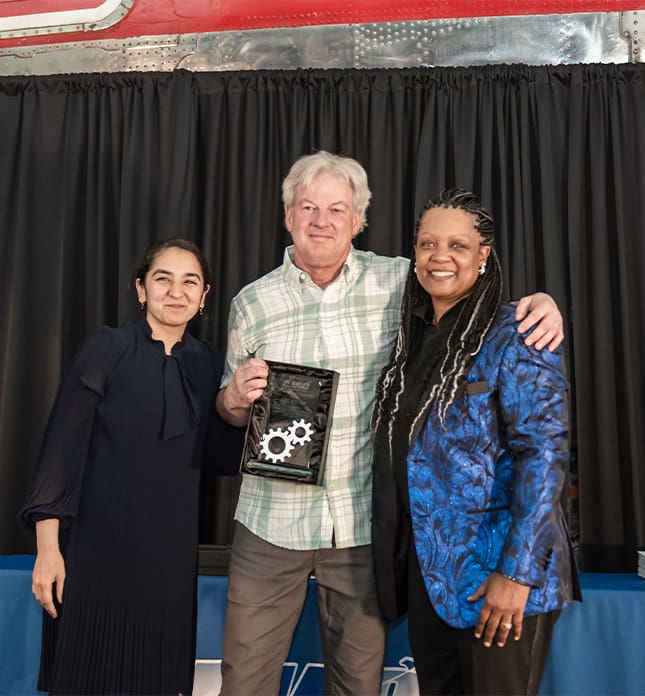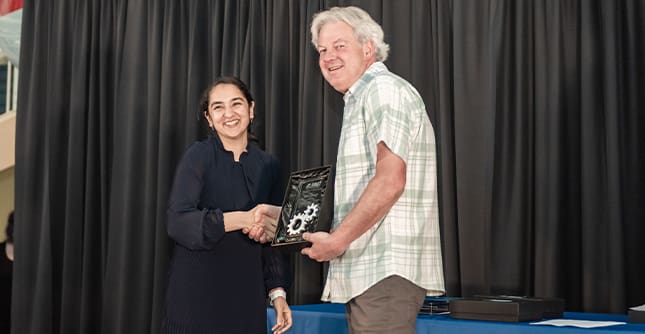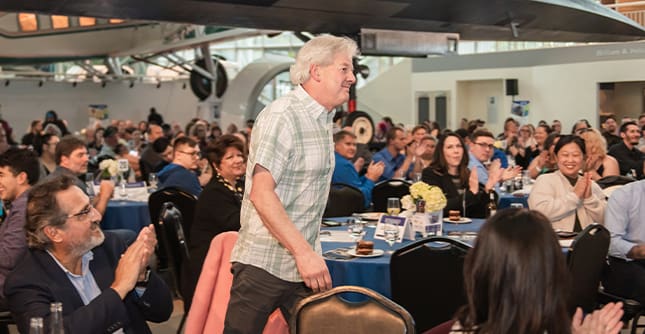How did you get you start in teaching?
I transferred to WSU from Highline CC as a mechanical engineering major. During my first year I volunteered in youth programs and had jobs coaching youth and high school sports, so, at the end of the year, I changed my major to Elementary Education. I had already taken enough math to qualify to teach high school math.
After graduation, I did some substitute teaching, but only for a few months, before I moved to Japan to teach English. I spent a year in Japan, taught some English, learned some Japanese, had some crazy adventures, paid off my student loans, and met my future wife.
When I returned I took a full time job as a math specialist in an inner city Seattle elementary school. The next year I was rehired as a second grade teacher. I taught there for 4 years. I transferred to a school closer to my home, and spent 19 years there teaching first grade. It was an incredible 19 years. It wasn’t at “the start” of my career, but it’s where my career really started. It was an amazing staff, parents, students, and community. My sons attended school there. The former director of AJAC also had 2 sons that attended school there. The youngest was my first grade student, so I was interviewing for a future job without even knowing it.
Have you always taught math?
When you teach a first grade class with 30 students, you have to specialize in every subject (they ask a lot of questions), and math is one of them. Actually, a very important one. The math isn’t complicated, but trying to teach it to 30 seven year-olds is.
When I left the public schools and went “free lance”, most of the jobs I was offered involved helping K-12 students with math.
Within a year, I was contacted by AJAC and offered a job teaching math to pre-apprentices. The transformation to “math teacher” was complete. But, I still teach other subjects when asked.
When did you join AJAC?
I started at AJAC in 2013. As I mentioned before, I was contacted by AJAC, out of the blue, and asked to teach math. I reminded the director that I had taught her son “first grade math”, but she knew my background in math, and figured if I could manage 30 first graders, half as many pre-apprentices would be easy.
I was in a transition in my career, and looking for something new. Opportunity came knocking, I answered the door.
I was told to show up “the next morning” to teach class, and I had no idea what math I would be teaching, but math is math, so… The more I learned about AJAC and the manufacturing industry, and the more I got to know about my colleagues and students, the more I wanted to stick around.
Why is math critical?
Math is a language of its own, and a lot of the “language” of manufacturing is numerical. Dimensions, tolerances, angles, RPM, feeds, speeds, density, volume, temperature, quality control…
The production of any part starts with an idea, a design, and then “doing the math”. Math is crucial throughout the design and production process, and is even vital to analyzing and improving the production process.
What is your approach?
I understand that my students have full time jobs, families, and plenty of stress that accompanies everyday life. I know that math class is not the top priority in their lives, and I try to figure out the best way to help each student.
- I let my students know what I expect of them and what they should expect from me.
- I try to take the stress out of math, because math can be pretty stressful subject.
- I try to keep explanations simple.
- I try to check in with each student to see how they are doing or how I can help them.
- I try to give feedback to the students as much and as quickly as possible, whether it is in class or by correcting homework, quizzes or tests as soon as they are completed and sending them notes if necessary.
I guess I just try to be the teacher that I’d want my kids to have.
What methods have you used to help apprentices better understand math and how it applies to their job?
My basic method for teaching each new concept or skill is;
- explain and demonstrate
- provide guided practice
- give individual practice
- check for understanding, and go back to the beginning if needed
Everyone learns differently, so I try to adjust my methods and the learning materials to make them more conducive to learning for each student.
Trying to make “textbook math” applicable to “shop math” can be difficult at times. The apprentices can be the best resources by sharing how they use certain math skills in their workplace. Apprentices can also provide the best way of explaining concepts to other apprentices. Nothing beats having my students do my job for me!
What is your favorite math class to teach?
Geometry/Trigonometry, because it is based on angles and shapes, which makes it easier to understand for the students.
What drives your passion for teaching?
I get a great deal of satisfaction from helping students learn new skills, gain confidence, reach goals…or just being a good listener or mentor. I think it’s called “helper’s high”. Ahh, dopamine and endorphins stimulate the brain and reduce stress. And, I get paid for it!
How have you helped apprentices in different ways?
I’ve met with students before and after classes. I’ve explained math over the phone, and sent written explanations via email or text. I’ve had zoom meetings to help students catch up with homework and make up tests and quizzes, or just get some individualized help.
I’ve met with students at libraries, coffee shops, diners, and at their homes. I’ve tutored students from other classes who are struggling with math or who have learning obstacles. I’d like to think that I’ve helped apprentices in ways that I’ll never know.
What keeps you motivated?
Trying to increase my knowledge of what I’m teaching and improve my instructional abilities is a motivator, but the feedback that I get from students is the strongest motivation. I guess I’m addicted to that “helper’s high”, I need my dopamine and endorphins. Serotonin is pretty good, too.
Is there a student or story you can share regarding an apprentice who was initially struggling with math but you helped their confidence and now they’re excelling in math?
There’s been a lot of students, and a lot of stories. There are several statements that I hear regularly every quarter:
- Ohhh!, I get it now! ( hear almost every class)
- I never knew what all those buttons were for on my calculator.
- I was never good at math in high school. (usually said by a student that is getting an “A” in the class)
- I wish you were my high school math teacher.
- I never thought I’d say this, but this math class was almost enjoyable.
As you reflect back on the many years you have taught AJAC apprentices, what stands out the most? What are you most proud of?
I feel good about all the positive relationships I have with the apprentices and my colleagues. I feel like I’ve made a lot of friends. It’s fascinating to learn about the lives of the students. They have such a wide variety of personal histories and experiences. I’ve had students from every continent except Antarctica. It’s like traveling around the world while staying in one place.
When attending the annual graduation ceremonies, I get to see some of the apprentices with their families, and you can see the impact that the program has had on their lives. The joy on their parents, spouses, partners, and children’s faces are something to behold. I’m proud to have played my part.
The teaching award is a nice acknowledgment that I am actually doing the job I’m paid for, however…
Whenever I attend AJAC instructor meetings, I am humbled to hear about the dedication, passion, and instructional methods of my colleagues. Receiving this award is like being chosen as player of the year on a team full of hall of famers. I’m just glad to be on the team.















